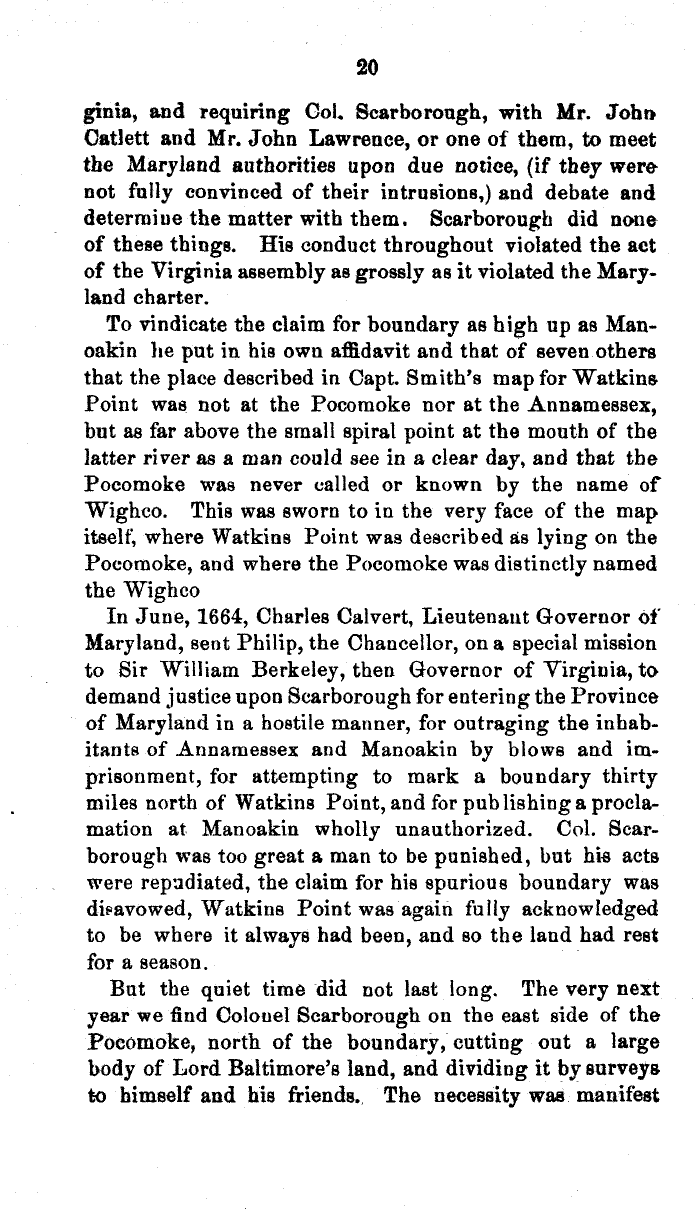| 20
gxnia, and requiring Col. Scarborough, with Mr. John
Catlett and Mr. John Lawrence, or one of them, to meet
the Maryland authorities upon due notice, (if they were
not fully convinced of their intrusions,) and debate and
determine the matter with them. Scarborough did none
of these things. His conduct throughout violated the act
of the Virginia assembly as grossly as it violated the Mary-
land charter.
To vindicate the claim for boundary as high up as Man-
oakin lie put in his own affidavit and that of seven others
that the place described in Capt. Smith's map for Watkins
Point was not at the Pocomoke nor at the Annamesse$,
but as far above the small spiral point at the mouth of the
latter river as a man could see in a clear day, and that the
Pocomoke was never called or known by the name of
Wighco. This was sworn to in the very face of the map
itself; where Watkins Point was described as lying on the
Pocomoke, and where the Pocomoke was distinctly named
the Wighco
in June, 1664, Charles Calvert, Lieutenant Governor of
Maryland, sent Philip, the Chancellor, on a special mission
to Sir William Berkeley, then Governor of Virginia, to
demand justice upon Scarborough for entering the Province
of Maryland in a hostile manner, for outraging the inhab-
itants of Annamesses and Manoakin by blows and im-
prisonment, for attempting to mark a boundary thirty
miles north of Watkins Point, and for publishing a procla-
mation at Manoakin wholly unauthorized. Col. Scar-
borough was too great a man to be punished, but his acts
were repudiated, the claim for his spurious boundary was
disavowed, Watkins Point was again fully acknowledged
to be where it always had been, and so the laud had rest
for a season.
But the quiet time -did not last long. The very neat
year we find Colonel Scarborough on the east side of the
Pocomoke, north of the boundary, cutting out a large
body of Lord Baltimore's land, and dividing it by surveys
to himself and his friends.. The necessity was manifest
|

